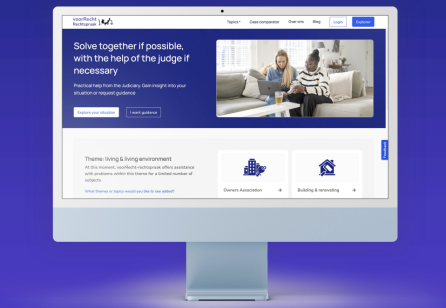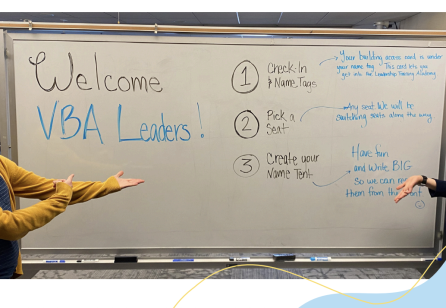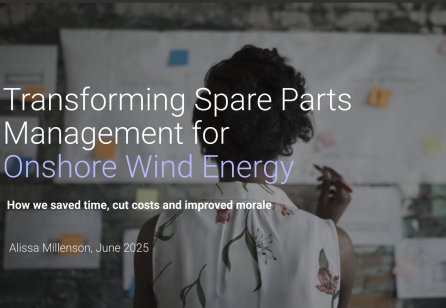A Guide for Award-Winning Service Design Projects
- Luis Alt
As a jury member since 2017, I have had the privilege of evaluating numerous service design projects. The evaluation process is critical to ensuring that the best projects are selected and awarded, becoming both a reference on the current status of the discipline as well as a guide to push the practice forward.
The projects selected as finalists are shared with the community, enhancing its repertoire for future work. It provides a precise snapshot of the status of the practice and services in general. Selected projects showcase current tools and methods used in the design process, useful technologies applied in services and customer needs, and the challenges organisations are trying to address.
In this article, I will share how I evaluate projects based on key criteria such as challenge, methodology, outcome, and the appeal of the submission - I will go through each of them. And although some of the judging categories were there before my arrival, the method I will share has become the basis of how the jury evaluates projects every year.
The challenge in evaluating service design
As most professionals in our area know, service design projects are rarely fully implemented or implemented precisely as designed. It can also be challenging to assess the effectiveness of a service without observing it in action, a difficulty that, considering the global reach of the award, can't be overcome. Finally, even implemented projects may still need measurable impacts on the user experience or business outcomes at the time of submission.
To overcome the above, we weigh in both the design process and the service outcome when evaluating service design work. If the process looks impressive, but the results are not there (or if it's the other way around), chances are the project is not award-worthy. So the service design award is both a service and a design competition.
Evaluation Criteria
Let's see how categories stack up on each other and what they are all about:
Challenge (20%)
The first criterion is the challenge the project aims to solve. I look for projects that tackle complex challenges and demonstrate a deep understanding of the problem. The more complex the project, the more points it gets (as gymnasts do when attempting more complex routines). The project should also demonstrate a clear understanding of the user's needs and the service delivery context.
Besides complexity, other aspects evaluated within this category are the relevance of solving this challenge to society and the planet and how important it seems for the organisation to solve it (how pressing the problem is for its success).
Methodology (40%)
The second criterion is the methodology used to design the service. As it is a service design award, not just a service award, this is weighted the most heavily.
When evaluating projects, I look for evidence of a rigorous design process that involves customer and/or employee research, ideation methods (co-creation is a must), prototyping and testing, the final specification of the service (blueprinting and implementation roadmap) and how it solved the challenge of handover for implementation.
The methodology should be well-documented and clearly communicated, providing enough evidence of how each stage informed the next one, how decisions were made, and what played a vital role at every step.
Outcome (20%)
The next criterion I consider is the outcome of the project. I look for evidence that the service design project has achieved its intended goals and created value for both the user and the organisation. The project should demonstrate a measurable impact on the user experience, service operations and the business. I also seek evidence of its implementation, the originality or innovativeness of the solutions, as well as to what extent it exceeds the original brief (if it does so).
Considering this element is worth 20%, only projects that excel in all other aspects might be selected as finalists if this is missing.
Submission Quality (20%)
Finally, I consider the quality of the submission piece itself. I look for well-organised, clearly written, and visually engaging submissions. The submission should communicate the project's goals, methodology, and outcomes effectively. This criterion is all about storytelling, a crucial element for service design projects as well.
Bonus for doing good (+10%)
As service design becomes more prevalent in organisations, our community has been keeping an eye on how we can make sure we also bring a positive impact in the world due to our projects. So the latest addition to the criteria, as proposed by the current president of the Jury, Birgit Mager, is how much the project promotes and solves issues such as DEI (diversity, equity and inclusion), ethics and sustainability.
Conclusion
The Service Design Network has played a significant role in driving the evolution of service design and inspiring practitioners to create impactful services. By promoting best practices and facilitating knowledge exchange among practitioners, the network has helped to raise the bar for service design excellence and establish a shared understanding of what constitutes a successful service design project.
I hope that with this article, I'll help our community improve the quality of the practice, increasing the positive impact we may have through our projects on how people live and work while ensuring that society and the environment benefit.
I would also love your opinion on how I evaluate projects and how we can continue evolving our judging process. Please consider submitting your work to the Service Design Award. It is a great way to assess your work, showcase your brand, and be more active in the community.









Share your thoughts
0 RepliesPlease login to comment